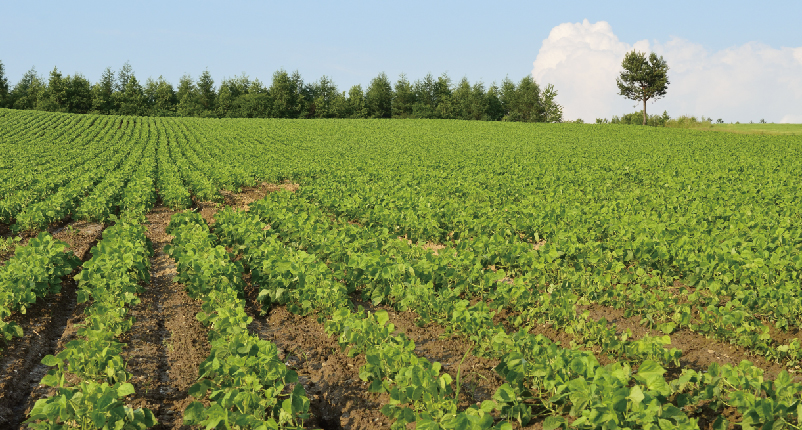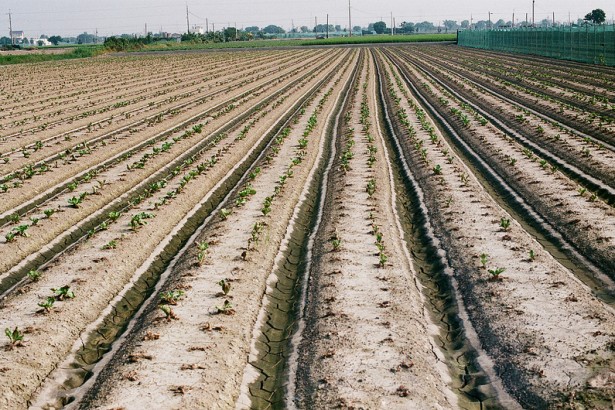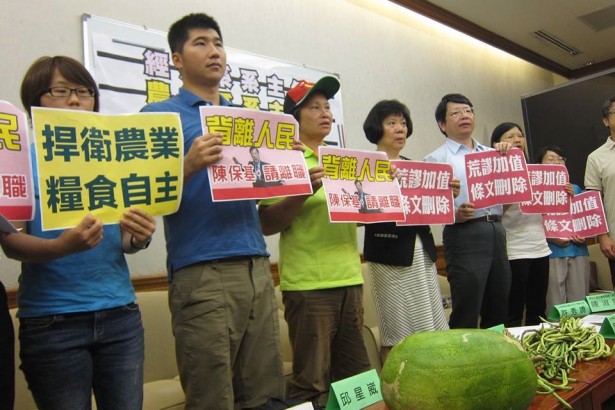Keep a piece of red bean field of friendly eagle
Share1.4K +13 Tweet2 EmailShares 1.4K
This spring we had a wonderful evening at the 259 Agricultural Garden in Tataocheng, and Hui Shan, a researcher from Pingtung University of Science and Technology, shared with us her long-term observations of black kite ecology in Pingtung and Kaohsiung. Because of her sharing, we can understand that the relationship between crops and the environment, people and ecology has never only occurred on the table. In the process of red bean cultivation, eagles soaring in the sky, small birds and red bean industries are closely connected with each other.
What does Red Bean have to do with Eagle? This is mainly due to the abuse of chemical pesticides (Carbofuran). Every year in mid-October, farmers will use a large amount of pesticides during the period when rice fields are converted to miscellaneous grains. For example, in the case of red beans, turtledoves and sparrows will pull out and peck at the sprouts that germinate to 10 cm in the early stage of seeds. Therefore, farmers will not only kill insects but also use Fudu Bird to prevent red bean seedlings from being pecked. Therefore, the birds that originally lived in that land and the black carp known as the "environmental scavenger" could not escape the trap of death.
Researchers from Pingtung University once surveyed an 18-hectare red bean field in Kanting Township, and found 2500 small bird carcasses, including sparrows, red doves, turtledoves, small larks and spotted birds, after only half a tour. Black kites also died of poisoning after eating these bird carcasses. As a result, black kites, which used to be social birds of prey all year round in Taiwan, have now become rare birds of prey in conservation. Carbohydrate is a neurotoxic pesticide, but Taiwan consumes thousands of tons a year. It is widely used in paddy fields, fruit trees and vegetables, and farmers rely heavily on it. The same is true abroad, where millions of wild birds have been poisoned in the past few years, so Canada and the European Union banned it as early as 2008, and the US Environmental Protection Agency decided to ban all traces of pesticides in food from 2009. However, Taiwan is still using it, and the amount is even increasing. Cheng Cheng-yung, professor of horticulture at National Taiwan University, says that carbophos is a "systemic" pesticide that penetrates the plant's fruit, stem, and roots gradually, making the plant resistant to insects. The toxicity is fierce, and no matter whether it is heated or washed, it cannot be easily removed completely.


"The black kite is an ambassador. It doesn't just represent itself. This tribe represents all our descendants. Everyone wants to eat healthy food and have a good quality of life. Therefore, protecting the black kite is equivalent to protecting ourselves." Sun Yuanxun, Professor, Institute of Wildlife Conservation, Pingtung University of Science and Technology
A producer's perception of the environment affects not only the safety of the crop, but also the field ecology of the land. More and more small farmers are pushing for friendly farming in order to achieve this balanced common good. However, to change the current situation, we must not rely solely on the kindness of farmers, but also on the support of consumer action. Friendly farming requires twice as much labor and time, and the quality is often better, so it is impossible to sell through the traditional production and marketing system. Therefore, like 248 Agricultural Market, Hopu Agricultural Market or Upstream and Downstream News&Market, they are trying to create a platform for farmers to contact consumers without exploitation by vendors and obtain more reasonable profits.
Three years ago, Green Vine began promoting friendly red beans, supporting farmers who use only a small amount of pesticides during flowering, do not use pesticides or defoliants after flowering and harvest, and rely on their own weeding. Let them carefully insist on planting peace of mind red beans, there are reasonable channels and reasonable prices to sell, do not worry about planting good things will be sold at a low price or can not be sold out. We believe that such red beans are the red beans that should appear on the table. Later we also introduced to 248 Confucian, who now make it easier for more consumers to participate in this mild revolution by roasting red bean soup. Please support friendly red beans without herbicides and wax. They are not only delicious, but also kind enough to make the land, ecology and people happy.
Public Television-"Our Island" feature on the plight of black kites due to pesticide abuse
Share1.4K +13 Tweet2 EmailShares 1.4K
- Prev

[cooperative Green School] 6Compact 21 strange hands of development extending into the countryside
[cooperative Green School] 6Compact 21 strange hands of development extending into the countryside
- Next

Agricultural economic scholars asked for an open debate on the regulations of the self-economic zone: "Please treat it rationally."
Agricultural economic scholars asked for an open debate on the regulations of the self-economic zone: "Please treat it rationally."
Related
- A course of planting techniques and methods on how to grow carrots
- How to plant the latest tulips?
- Is it better to pick tea in the morning or in the afternoon? When is the best time for tea to be picked? what is the third or fifth tea?
- Launch Yuanxiao Happy combination Haocha + Tea Yuan healthy Taste
- Penghu Tourism "Fireworks 20 Parade with You"
- 2022 West Lake Happiness holds "Digital Revitalization Voucher" and draws iphone13 and laptop.
- Banqiao Fuzhou social houses are designed to change start-up combined with police elimination to create a safe and livable environment
- The convenient measure of "mechanical weeding" in Xinbei has been abused and the Agriculture Bureau has imposed heavy penalties on the illegal land consolidation.
- Changgeng University Joins Hands with Four Memory Factories to Rescue Memory Talent Shortage
- The list of Taiwan's top 100 MVP managers is listed by the Director-General of the Farmers' Association of Sanxia District.

